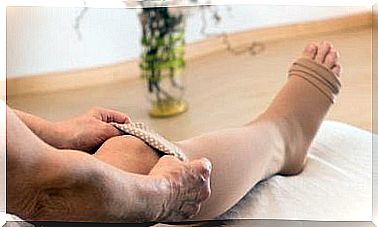Five Tips For Practicing Spelling With Your Child
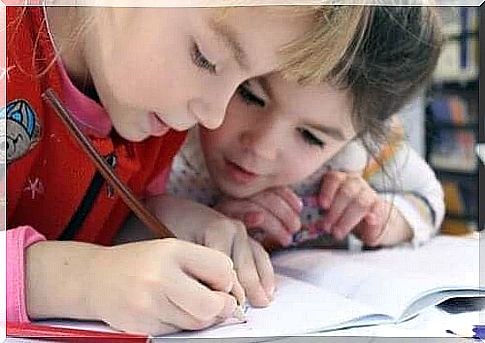
Learning to write and the rules for doing it “correctly” is one of the most complex stages that children go through. Therefore , you should practice spelling with your children at home to compliment what they learn in school. This is a lot more fun if you do something creative.
It is seldom a family reunion where a well-meaning family member will not ask us or our school-age child if they have already learned to read and write, followed by a small test such as “How do you spell your name?”
We politely bite our teeth together, fake a smile and say “Come on, dear, we have practiced spelling your name many times. Do you remember? Here, let me help you. ” (Huff!)
If we feel pressured (and annoyed), you can only imagine the anxiety children feel. They face a new world with 29 new symbols and their endless ways of combining them for the extensive written vocabulary they once needed – which also comes with all kinds of rules and conventions.
To follow the trail of spelling
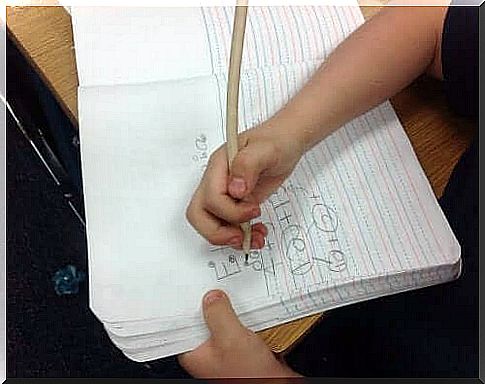
It’s not just about learning to read and write, but also about doing it right. Writing presupposes a new structure for reasoning for a child and a completely new way of communicating and expressing ideas.
However, this is becoming more and more complex due to the fact that children are now exposed to the use of electronic devices and social networks. In the world of social media, misspellings are becoming more common and actually encouraged. (Do not know what WTF means? ROFLMFAO!)
The “correct” spelling depends on the number of characters allowed in a Twitter message… or in a hurry to respond to a chat. Most of these platforms allow “mistakes” when typing, such as shortening words or removing punctuation or even using “emoticons.”
All of this complicates and increases the challenge of teaching our children to spell in the information age. The best way to learn to spell correctly, as well as expand your vocabulary and even learn a new language, is simply through reading.
This is how you can practice spelling with your child
It is important to look for some fun and creative ways to introduce children to the world of letters and practice spelling. Apart from what the school offers and the interaction with new technology, it is necessary to make the practice of spelling a fun task, full of games and playful challenges.
Take advantage of technology
Letting your children sit in front of a screen, cell phone or tablet puts some parents in a constant moral dilemma. New technology is increasingly reducing family time and exposing children to elements that cannot be continuously monitored by adults.
On different platforms , however, you can also find good allies who make reading and writing a fun moment.
Just connect for a few minutes and you can get everything from videos with entertaining songs to online games and free applications that can help your child practice spelling.
2. Home games to practice spelling
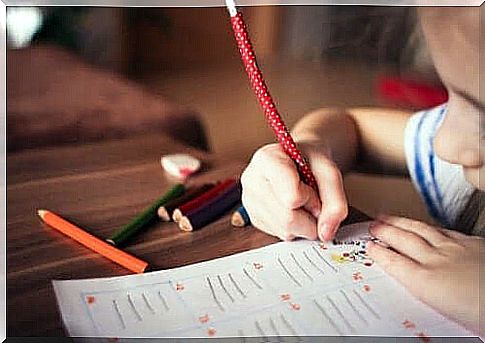
Traditional board games like Scrabble are good allies when it comes to learning new words and using letters. If you do not have one, make your own.
You can also invite your children (and others) to rebus races at home or in the park. Hide clues with letters or words. Then, by following the clues, they end up forming words and / or completing sentences.
Furthermore, you can invent songs with rhymes and talk about the properties of each letter and each word written. It’s a fun way to show them the association between letters and words.
3. Discover words and sentences
Start with paper, pencil and a timer, and let your child write as many words as they can think of that start with a certain letter. This not only helps to practice the correct use of the letters, but it also expands their vocabulary by seeing the words that others chose. Younger children can play in pairs.
Another idea is to cut out and put together boards with words and punctuation. (Yes, like magnetic poetry.) To play, select words to form different sentences using the same words. You can change the order and score.
In this way, children learn the value of using spelling rules to be able to express different ideas correctly.
4. You can play school at home
Playing school is another great option. Mom or Dad can be the teachers and the kids can be the students, but even at times they can switch roles. Of course, the set must have chairs, a table or a desk, blackboard or other typical school elements.
You can also wear costumes so that the children really get into their roles ; they will love it! This gives you an hour to practice spelling.
You can also give fun, quick tests or short exams to children. However, this MUST be done in a fun way and not over supper. Instead of points, you can reward them with healthy treats or a trip to the park or the ice rink.
5. There are letters everywhere
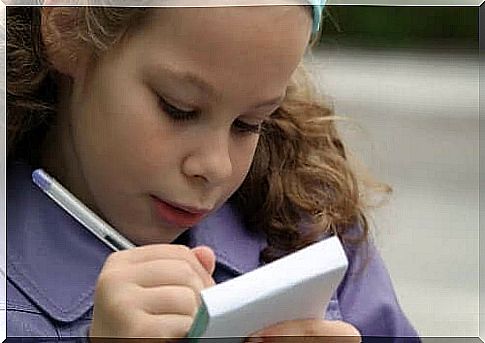
If your routine does not always allow you to dedicate time to a game, you can take advantage of the various opportunities during the day to show the world of letters to your children. Vary them every day to try to find new and fun things.
For example, when walking down the street or from the car, you can play a game to see who detects certain letters the fastest on the ads or posters around you.
You can also take advantage of the meals. Make dishes with letter shapes or write their names or a loving word with vegetable sticks, pasta or in ketchup.
Practicing spelling can help your children grow
Learning to communicate through written language is not as natural a process as learning to speak. It requires other capacities in the intellectual and emotional realm. It forces them to visualize words differently, through symbols.
Helping your children with proper learning processes so that they can read and write guarantees them entry into the most fascinating world with great benefits: the world of reading. Reading / writing increases the intellectual and empathic abilities of every human being. It allows for better daily and social development, and it also enhances their potential.
Knowing how to spell is a process that also increases the ability to create and imagine. While children learn to write correctly, important values are also learned. These include respect for language and a habit of reading, as well as the cultural connotation that literacy implies.
Remember that children learn by example. If they see you reading, they will read. If they see you looking at a screen all day, then… well, you take the point.
